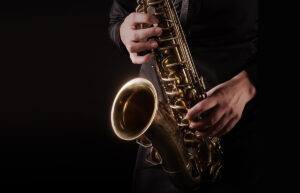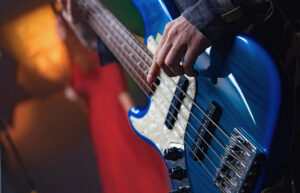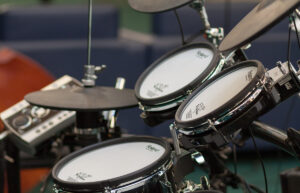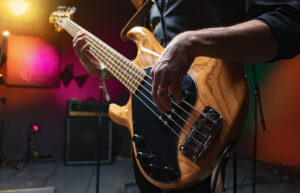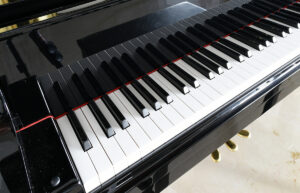Picking the Right Strings: A Comprehensive Guide for Choosing Strings for Your Guitar and Tips for Their Maintenance
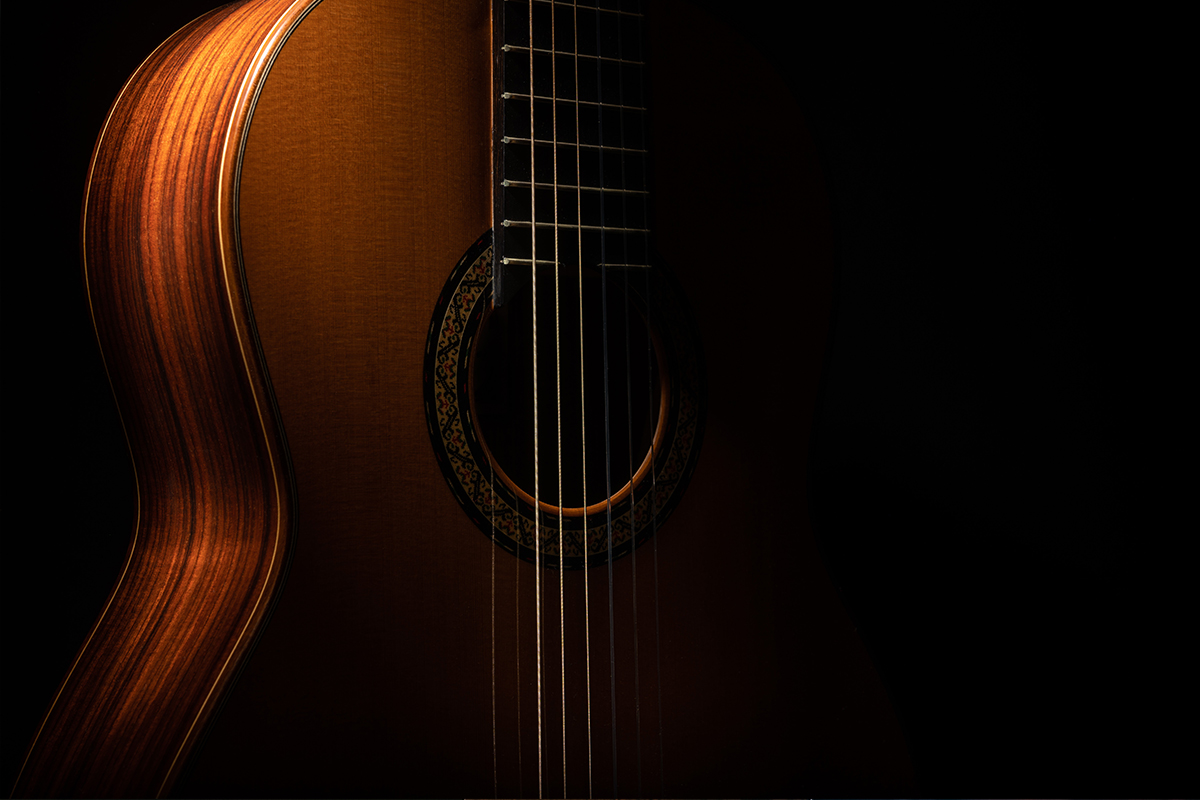
In my musical journey, right from the overexcited pre-teen who was given his first guitar as a gift to starting my guitar academy, I have gone off track numerous times. To rephrase in the current context, I may have pulled the wrong musical string (quite literally!) many times. When I was starting out, I had to rely on music theory books (I was not a bookworm), friends (who were just as clueless as me), or decentish seniors in high school who just pretended they knew better, but really didn’t (I was plucky and too anyways to listen to them anyways). In the pre-Internet era, coming from a not-so-privileged background, I could not ask my father to hire a tutor for me. I am largely a self-taught musician, who gained proficiency after years of practice. I did shed the not-the-bookworm idiocy and mastered music theory, jammed my heart away in a moderately successful band, and slowly ventured into teaching the guitar.
In my years of learning, playing, and tutoring the guitar, I am amazed by how underrated the choice of the guitar string is. Musicians from absolute novices to even some maestros make the choice wrong. I can’t help but guffaw at these elementary mistakes. Wrong strings can not only result in poor tone but also badly influence your playing.
Equally important is the upkeep of the strings. Improperly maintained guitars lose tonal balance and exhibit sound decay. In the long run, your ears may become trained in the wrong way.
To address these concern, in this article, I delineate factors to consider when choosing from diverse acoustic guitar strings—from the crisp brilliance of 80/20 bronze strings to the vintage charm of Monel alloy strings—as well as the top 10 brands for acoustic guitar and equip you with essential tips to prolong the acoustic tonal brilliance of the threads that weave aural magic.
Welcome to TheDemoStop, now join the community!
Connect with artists, fans and producers around the world.
Acoustic guitar strings
You can’t just slap on any guitar strings you buy from the store (trust me, you really can’t). With acoustic guitars the most popular stringed musical instruments, strings are just as vital as the instrument. A little diligence over the choice of strings can go a long way in your musical progress.
Strings produce sound through air vibrations. A typical acoustic guitar has six strings stretched taut across the guitar’s body. Each string is of varying thickness and tuned to emit a sound of a specific pitch when plucked, strummed, or picked. Steel, bronze alloys, and synthetic fibers such as nylon are widely used to prepare acoustic guitar strings.
The sound and tonal quality of a guitar is heavily influenced by the choice of strings. The selection of acoustic guitar strings is a nuanced preference, allowing players to tailor their instrument’s sonic palette to their preferences and playing style.
Types of acoustic guitar string
Phosphor bronze strings
In my experience, phosphor bronze strings have a warm and balanced tone. These strings have a copper and zinc alloy with a small amount of phosphorus, offering a rich sound with enhanced bass frequencies. They’re popular among players who prefer a well-rounded and versatile sound.
Give “Take Me Home, Country Roads” by John Denver a try on these strings. You won’t be disappointed.
80/20 bronze strings
You can rely on 80/20 bronze strings, made of 80% copper and 20% zinc, to deliver a bright and crisp tone. They are known for their pronounced high frequencies and clear projection. These strings are favored by guitar players seeking a sparkling and lively sound from their acoustic guitars.
True the Oasis brothers were feuding most of the time, but the one thing they agreed on was that “Wonderwall” sounded amazing on 80/20 bronze strings.
Silk and steel strings
Silk and steel strings are uniquely composed, with silk fibers intertwined with steel core wires. This combination provides a softer feel and a mellower tone. I often chose silk and steel strings for a comfortable playing experience.
I remember playing my rendition of SImon and Garfunkel’s “The Boxer” to a rousing audience in a local music festival. I had them swooning to my guitar playing.
Nylon strings
Say Nylon strings, and my mind immediately plays the wonderful collaboration medley “Mediterranean Sunrise” by guitar virtuosos Paco de Luca, Al Di Meola, and John Maclaughlin.
Nylon is a synthetic fiber. Nylon strings are widely used in classical and flamenco guitars. They are suitable for a specific type of sound and are preferred for fingerstyle guitar playing. Nylon strings are characterized by their warm tone but are not as articulate as steel and bronze strings.
Factors to consider when choosing acoustic guitar strings
Gauge
Gauge refers to the thickness of the guitar strings, measured in thousandths of an inch. The following gauge sizes are available for acoustic guitar strings:
- Extra light (0.010–0.047)
- Custom light (0.011–0.052)
- Light (0.012–0.053)
- Light/medium (0.0125–0.056)
- Medium (0.013–0.056)
These sizes represent the thickness of the high E string to the low E string, measured in inches. With my years of playing, I can confidently say that lighter gauges are easier to play and bend but may sacrifice some tone and volume, whereas heavier gauges offer more volume and a fuller tone but can be harder on your fingers.
Most musicians I know choose a gauge based on their playing style and preference. Feel free to try out the different gauges and pick one that suits you best.
String core
No these aren’t the cores of wands. Regardless of how hard you whip these strings with frivolous incantations, you shan’t be able to weave any magic without winding these strings to the neck of the guitar and that too only after meticulous practice. The core of the string is the inner structure of the string. String cores are of the following types:
- Hex core strings have a hexagonal (six-sided) steel core wire, which allows for a more precise and consistent winding of the outer layers, contributing to improved tuning stability and tonal clarity. Hex core strings are widely used because of their durability and reliable performance. Slash of Gun N’ Roses fame swore by hex cores for “Sweet Child of Mine.”
- Round core strings have a core wire with a circular cross-section, which allows for a flexible and responsive feel, enhancing the string’s vibration and producing a warm tone. Round core strings are known for their warmth and sustain, making them a preferred choice for players appreciating their smooth and natural feel. Remember the dreamy “Wish You Here” by David Gilmour? He got that sound from a 12-string guitar affixed with round core strings.
Ultimately, the choice of string core considerably affects your playing style. I suggest trying out both and playing a set of songs on each before you affirm yourself to one core. Of course you can switch cores anytime you desire.
Winding type
Winding refers to the material wound around the core. Winding can be a roundwound, flatwound, or halfwound, each with a distinct feel and tone.
- Roundwound strings have a textured surface, providing brighter tones and more sustain. Remember the heart-rendering “Tears in Heaven”? Eric Clapton used roundwound strings to play the song live. I find roundwound strings perfectly balance mids, highs, and lows. Rock, metal, and pop go along well with a roundwound string.
- Flatwound strings have a smoother surface and offer a vintage or traditional sound that is preferred by Jazz musicians.
- Halfwound strings are a compromise between flatwound and roundwound strings, offering a smoother feel without sacrificing too much tonal brightness.
Welcome to TheDemoStop, now join the community!
Connect with artists, fans and producers around the world.
Coating
Coating is a protective layer applied on the strings to resist corrosion and enhance longevity. I find that Nanoweb- or XS-coated strings can withstand dirt and oil, providing a smoother feel and prolonged life. If you are an amateur who plays guitar once in a while and loses interest until you have that sudden bout of creativity or that relative comes along asking you to play, I would recommend coated guitar strings for you. While they last longer, some musicians find coated strings to have a slightly different feel and tone than uncoated strings. However, this has not been my personal preference. I find coated strings to play just as well as conventional uncoated strings.
Brand
Brands produce strings with unique characteristics. Brands such as D’Addario, Elixir, Ernie Ball, and Martin have distinct qualities. Experimenting with various brands is recommended to help you find the strings that suit your playing style and preferences. Read ahead to get insight on the best acoustic guitar string brands.
Price
The price of strings can vary widely. Although higher-priced strings use premium materials, it’s essential to find a balance between quality and your budget. Consider how often you play and how quickly you go through strings. If you are amateur or accomplished musicians just jamming at home, you can opt for lower-priced strings. For performances, go for quality. The price of the strings also depends on the materials:
- Brass strings range from $9–$133 (6-string sets).
- Steel strings range from $4–$43 (12-string sets).
Top 10 acoustic guitar strings
I have constantly switched acoustic string brands. At 22 (the peak of my band career), I had tried almost all brands of guitar strings of note. Of the many brands I tried, not all are worth mentioning. Some brands are exceptional, and some strings are mediocre. The following are my picks for the top10-acoustic guitar strings (why would anyone want mediocre, I wonder!). Because of the subjective nature of the sound of the guitar strings, I do not wish to rank them. The following list is not in order of ranking. Frankly, in my opinion, guitar string brands cannot be ranked.
Ernie Ball Aluminum Bronze Acoustic Guitar Strings

- Specifications:
- String core: Steel core for durability and bright tones.
- Winding type: Aluminum bronze alloy for clarity and balanced tone.
- Coating: Typically uncoated.
- Reasons to buy: Well-suited for various playing styles, reliable performance.
- Reasons not to buy: May not suit guitar players preferring warmer tones.
Martin Retro Monel Vintage Tone

- Specifications:
- String core: Monel alloy for vintage sound, warm and mellow tone.
- Winding type: Roundwound for textured surface and warmth.
- Coating: Uncoated.
- Reasons to buy: Ideal for classic vibe enthusiasts, unique tonal characteristics.
- Reasons not to buy: May not be the best choice for those seeking a brighter tone.
D’Addario Nickel Bronze Acoustic Guitar Strings

- Specifications:
- String core: High carbon for strength.
- Winding type: Nickel bronze alloy, bright and articulate tone.
- Coating: Uncoated.
- Reasons to buy: Versatile across genres, consistent quality.
- Reasons not to buy: Do not appeal to those seeking a mellower sound.
Dunlop 80/20 Bronze Acoustic Guitar Strings

- Specifications:
- String core: High-quality steel core.
- Winding type: 80/20 bronze alloy, bright and lively tone.
- Coating: Uncoated.
- Reasons to buy: Crisp sound, famous for brightness.
- Reasons not to buy: May lack warmth for certain playing styles.
Elixir Strings 80/20 Nanoweb Coated Strings

- Specifications:
- String core: High-quality steel core.
- Winding type: 80/20 Bronze alloy with nanoweb coating for extended life.
- Coating: Nanoweb coating for longevity, clear, and vibrant tone.
- Reasons to buy: Extended lifespan, consistent quality.
- Reasons not to buy: Coating may alter the feel for some players.
D’Addario Pro-Arte Laser Selected Classical Strings

- Specifications:
- Gauge: Standard classical gauges.
- String core: High-tensile nylon for classical guitars.
- Winding type: Precision laser-selected classical strings.
- Coating: Uncoated.
- Reasons to buy: Rich and expressive sound, suitable for classical guitarists.
- Reasons not to buy: Limited appeal if you’re not into classical playing.
Welcome to TheDemoStop, now join the community!
Connect with artists, fans and producers around the world.
La Bella Vapor Shield

- Specifications:
- String core: Steel core for durability.
- Winding type: Vapor shield technology for an extended lifespan.
- Coating: Vapor shield coated for corrosion resistance.
- Reasons to buy: Durable choice without compromising tone.
- Reasons not to buy: May be pricier.
D’Addario XS Phosphor Bronze Acoustic Guitar Strings

- Specifications:
- String core: High-carbon steel for strength.
- Winding type: Phosphor bronze alloy with XS coating for longevity.
- Coating: XS coating for enhanced lifespan.
- Price: Expensive due to coating.
- Reasons to buy: Versatile, resistant to corrosion.
- Reasons not to buy: Coating may slightly alter the feel.
Ernie Ball Earthwood Phosphor Bronze

- Specifications:
- String core: High-carbon steel for strength.
- Winding type: Phosphor bronze alloy with XS coating for longevity.
- Coating: XS coating for enhanced lifespan.
- Price: Costlier due to coating.
- Reasons to buy: Reliable and versatile for different playing styles.
- Reasons not to buy: May not suit those looking for a brighter sound.
Fender Dura-Tone Acoustic Guitar Strings

- Specifications:
- Special coating for durability, bright and clear tone.
- String core: High-quality steel core.
- Winding type: Dura-tone coating for enhanced durability.
- Coating: Dura-tone coated for longevity.
- Reasons to buy: Longevity and consistent quality. Generally falls in the mid-range, offering durability at an affordable price.
- Reasons not to buy: Coated strings might not appeal to all players.
Tips for maintaining your acoustic guitar strings
Guitar strings typically start sounding dull as they lose sheen over time. Although musicians periodically replace strings to maintain tonal vibrancy, some actions can prolong the playing life of guitar strings. Coated strings are an option, but even they can be damaged.
Because I was introduced to the guitar earlier than most musicians do (I was no right-of-the-womb genius whizz, but 12 is still early), I am embarrassed to admit that I was very careless with regards to the care of my strings. As I turned professional, I realized that proper care of the guitar string is just as important as practice. I list the following measures to protect guitar strings from damage and prolong their life.
Wash your hands first
- Playing with clean hands prevents oil and dirt from transferring to the strings. Grime from hands may cling to the strings and change the pitch and tuning of the instrument.
- Clean hands can reduce corrosion and maintain string lifespan.
Wipe your strings after playing
- Wiping strings removes sweat, debris, dust, and dirt particles.
- Be careful not to use wet or moist wipes.
- Clean strings minimize corrosion and preserve the string’s tonal quality.
Remove your guitar strap after playing
- Straps can trap moisture. Guitar straps may tangle with guitar strings when unused and cause cuts and damage.
- I have had countless occasions when a dangling strap has rubbed the strings and worn them away. This is completely avoidable. Removing the strap prevents sweat-related corrosion and maintains the finish of the guitar.
Use a string cleaner
- Applying a string cleaner removes built-up grime. You can easily
- A string cleaner enhances playability and extends string life.
Proper storage
- Stings are particularly sensitive to environmental changes. Factors such as moisture and external temperature alter the sound of the strings. Storing in a case or controlled environment protects strings.
- Proper storage can prevent humidity, temperature changes, water exposure and preserve string quality.
Avoid scratches and nicks
- Do not pick with sharp objects. Use only plectrum of reasonable thickness and material. Physical damage such as scratches and cuts may cause strings to snap.
- Preserves both the strings and guitar’s appearance.
Welcome to TheDemoStop, now join the community!
Connect with artists, fans and producers around the world.
Summary
Guitar playing is not just strumming away (or fingerpicking if you prefer) on your guitar. To ensure top-quality sound, you must understand how the choice of guitar strings can influence your play. Incorrect choice of guitar strings will leave you with a cackle of dissonant noise but no music. I hope with this guide, you can pick the guitar string best suited for your style of play. The essential tips and tricks for maintenance can ensure that your strings retain tonal quality for longer durations.
Acoustic guitar strings: Acoustic guitar strings are the metal alloy or nylon wires stretched across the guitar’s body. These strings produce sound when plucked or strummed.
Factors to consider while choosing acoustic guitar strings:
- Gauge: Choose the thickness that suits your playing style.
- String core: Opt for a round or hex core based on feel and tone preference.
- Winding type: Consider roundwound for brightness, flatwound for mellowness, and halfwound for the best of both worlds.
- Coating: Coated strings resist corrosion and last longer.
- Brand: Different brands offer unique characteristics.
- Price: Balance quality with your budget.
Types of acoustic guitar strings: Various types of acoustic guitar strings are tailored for various styles of play. Phosphor bronze strings are popular for their balanced tone, with warmth and clarity. 80/20 bronze strings provide a bright and crisp sound. Silk and Steel Strings are softer and ideal for fingerstyle playing. These variations cater to different playing styles and tonal preferences, allowing guitarists to choose the strings that best suit their musical taste.
Top 10 acoustic guitar strings:
- Ernie Ball Aluminum Bronze
- Martin Retro Monel Vintage Tone
- D’Addario Nickel Bronze
- Dunlop 80/20 Bronze
- Elixir 80/20 Nanoweb
- D’Addario Pro-Arte Classical
- La Bella Vapor Shield
- D’Addario XS Phosphor Bronze
- Ernie Ball Earthwood Phosphor Bronze
- Fender Dura-Tone
Tip for maintaining acoustic guitar strings:
- Wipe strings after playing.
- Keep hands clean.
- Use a string lubricant.
- Store in a case or controlled environment.
- Regularly check for wear and tear.
FAQs
What are the different types of acoustic strings?
The following types of acoustic guitar strings are available:
- Phosphor Bronze
- 80/20 Bronze
- Silk and Steel
What kind of string is the best for acoustic guitar?
The best strings for an acoustic guitar depend on personal preference and playing style. However, the commonly used strings are the phosphor bronze strings for their balanced tone, whereas 80/20 bronze strings are known for their bright sound. Experimenting with different types can help you find what suits your playing style and preferences the most.
What are the most used acoustic strings?
Some of the most used acoustic guitar strings include popular brands like D’Addario, Elixir, and Ernie Ball. These brands offer a variety of string types catering to different preferences and playing styles, making them widely favored among acoustic guitarists.
What strings are easier to play acoustic?
Lighter gauge acoustic strings are generally easier to play as they exert less tension on the fingers. Additionally, strings with a silk and steel composition offer a softer feel, making them more comfortable for beginners or players who prefer a gentler touch on their acoustic guitar.
What gauge strings are the best for acoustic guitars?
Lighter gauge strings (e.g., 11–52) are the best beginners and fingerstyle players as they are generally easier to play and facilitate bending. Medium gauge strings (e.g., 13–56) balance playability and tone, suitable for various genres. It’s advisable to experiment with different gauges to find the gauge that suits your playing style and desired tone.
What acoustic guitar strings have the brightest sound?
Acoustic guitar strings of 80/20 bronze alloy are known for producing the brightest sound. The 80/20 bronze composition (80% copper, 20% zinc) emphasizes higher frequencies, creating a crisp and bright tone. Players who prefer a lively and sparkling sound often opt for 80/20 bronze strings.
How can I make my acoustic strings last longer?
To extend the lifespan of your acoustic strings:
- Use coated strings to ensure corrosion resistance.
- Wipe strings after playing to remove sweat and debris.
- Keep hands clean and wash hands before playing.
- Use string lubricant to reduce friction, enhancing longevity.
- Store in a case to protect from humidity and temperature changes.
- Regularly check for wear replace damaged strings promptly
What factors to consider when choosing acoustic guitar strings?
Consider the following factors when choosing acoustic guitar strings:
- Gauge: Thickness affects playability and tone.
- String core: Hex and round cores for different feel and style.
- Winding type: Roundwound for brightness, flatwound for a mellow tone, or halfwound.
- Coating: Coated strings resist corrosion, extending lifespan.
- Brand: Different brands offer unique characteristics.
- Price: Balance quality with your budget for the best value.
What are the top 10 acoustic guitar strings?
The top 10 acoustic guitar strings are as follows:
- Ernie Ball Aluminum Bronze
- Martin Retro Monel Vintage Tone
- D’Addario Nickel Bronze
- Dunlop 80/20 Bronze
- Elixir 80/20 Nanoweb
- D’Addario Pro-Arte Classical
- La Bella Vapor Shield
- D’Addario XS Phosphor Bronze
- Ernie Ball Earthwood Phosphor Bronze
- Fender Dura-Tone
What are the tips for maintaining your acoustic guitar strings?
- Wipe strings after playing: Remove sweat and debris to prevent corrosion.
- Keep hands clean: Wash hands before playing to reduce oil transfer.
- Use a string lubricant: Enhances playability and reduces friction.
- Store in a case or controlled environment: Protects strings from humidity and temperature changes.
- Regularly check for wear and tear: Replace damaged strings promptly for optimal sound.



